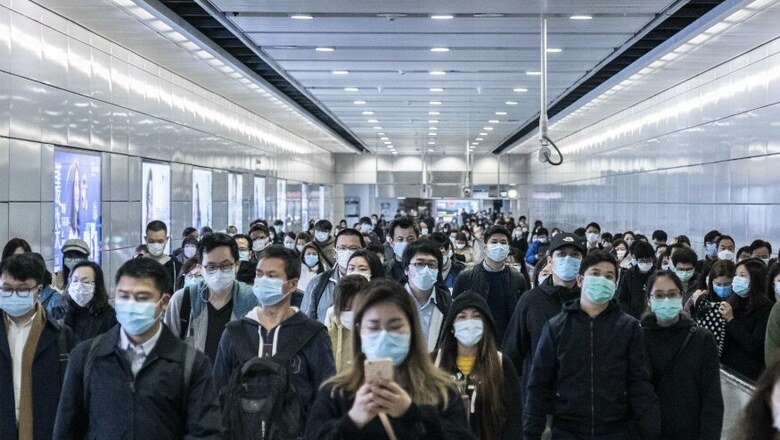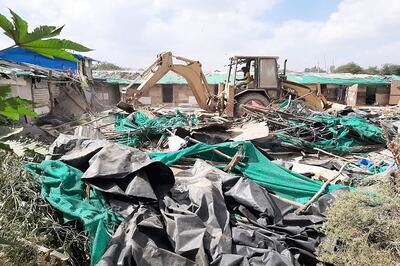
views
New Delhi: While the World Health Organization (WHO) is revered and trusted for its accurate information during a health crisis such as the coronavirus pandemic, reports indicate that its stance on masks might negatively impact the global battle against the illness.
The international body in its ‘When and How to Use Masks’ section on its website stated, “If you are healthy, you only need to wear a mask if you are taking care of a person with the suspected 2019-nCoV infection.”
However, an article published by the Washington Post revealed that the divide between “pro-mask” stances by mostly western countries is related to the idea of “socially responsible behaviour” and contrasts vastly with many Eastern countries.
General Perception Contrary to the Trend
Following WHO’s view on the effectiveness of masks in the global fight against the virus outbreak, an American surgeon took to social media on February 29 saying, “masks are not effective in preventing the general public from catching coronavirus.”
His view not only contradicted significant scientific evidence regarding the effectiveness of masks, but it also came when the United States was facing a shortage of N95 masks for medics who are working at the frontline of the virus crisis response.
A large number of researchers, scientific papers indicates that basic masks are effective in reducing the risk of virus transmission in communities.
Apart from the studies, glaring examples of how countries like Hong Kong, Mongolia, South Korea and Taiwan were successful in containing the spread of the virus through DIY masks despite emerging as epicentres indicates its importance.
The director-general of the Chinese Center for Disease Control and Prevention George Gao said, “Many people have asymptomatic or presymptomatic infections. If they are wearing face masks, it can prevent droplets that carry the virus from escaping and infecting others.”
Masks are especially helpful in controlled environments like airplanes.
Masks don’t have to be Complex to be Effective
According to a 2013 study, a variety of household materials were tested for effectiveness against transmission of viruses. It was found that two layers of a cotton t-shirt are highly effective at blocking virus particles of a wide range of sizes.
Another study by Oxford University found that simple fabric to cover mouth and nose is effective tools against virus transmission. In fact, hospitals running out of N95 masks are themselves turning towards home-made alternatives. “If it’s good enough to use in a hospital, it’s good enough for a walk to the store,” a doctor said.
Countering WHO
Health officials have said that the WHO’s stance on the use of masks is unscientific saying that the international organization is citing “three spurious policy arguments”.
“First, there are not enough masks for hospital workers. Second, masks may themselves become contaminated and pass on an infection to the people wearing them. Third, masks could encourage people to engage in riskier behaviour,” a doctor was explained.
Critics have rejected these on the grounds that while there is a shortage in manufacturing of masks for medical workers, making homemade ones out of t-shirts and washing them at the end of the day are helpful methods.
The Hong Kong Consumer Council said rigging a simple mask with “kitchen paper towel and rubber bands that can be thrown in the trash at the end of each day,” are effective preventive measures.
While there are those who think that this method has a high risk of coming in contact with the virus, experts said that it is better for a mask to get contaminated instead of a person. “That is the very purpose of a mask,” a doctor explains.
On comments regarding masks encouraging “risky behaviour”, officials said masks can be washed or disposed and people can avoid risks of contracting the virus by washing hands.
“We still give cars anti-lock brakes and seat belts despite the possibility that people might drive more riskily knowing the safety equipment is there,” said the column in the Post.
In many instances, authorities are seen advising masks only to those who are symptomatic. This has been highly contested by many citing the high rates of infection contraction of coronavirus.
“But this doesn’t help with a disease like Covid-19 since a person who does not yet show symptoms can still be contagious,” an official was quoting as saying citing an example from Iceland.
The National Institute of Allergies and Infectious Diseases Director Anthony S Fauci warned that there was strong evidence that covid-19 spreads even among people without symptoms.
“If we all wear masks, that could help keep people who are infected with the coronavirus but don’t know it from spreading it,” he said.
The Czech Example
The example of the virus outbreak in the Czech Republic shows that the idea of rejection of masks in Western countries is not completely true. Social media influencers campaigned to encourage DIY mask creation and led catalysed an extraordinary mobilization by masses.
“Within three days, there were enough masks for everyone in the country, and most people were wearing them. This was an entirely grassroots community effort.”
Interestingly, at the call of social distancing a small bar in Prague closed down and its owner, Stefan Olejar, quickly converted ‘Bar Behind the Curtain’ to a mask manufacturing facility.
To bolster this task, he procured sewing machines from the community and is now creating 400 cotton masks per day. There are 10 people employed, including a driver who distributes the masks directly to people who are not able to leave their homes.
A number of “Mask trees” were also seen across the country, where people hang up masks that they have made so others can take them.
The most important message shared in the Czech Republic according to many has been: “My mask protects you; your mask protects me.”
Reports suggest that the mask culture is growing so much that wearing masks is considered a prosocial behaviour in these times.
The government also responded to the cultural movement and made it illegal to go out in public without wearing a mask.
However, usage of masks alone is not enough to stop the spread in the community. “Restrictions on movement and commerce need to stay in place until hospital systems are clearly able to handle the patient load,” an official said.
"This will be followed by a rigorous system of contact tracing, testing and quarantine of those potentially infected," he added.




















Comments
0 comment